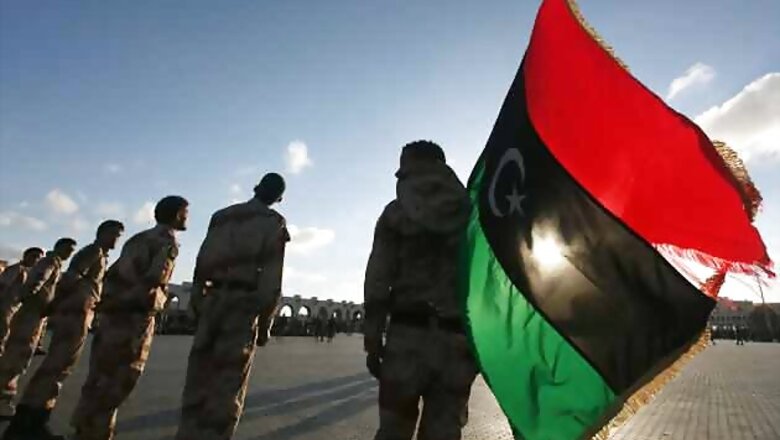
views
Tripoli: Libya's deputy intelligence chief was kidnapped outside Tripoli airport on Sunday, two security sources said, days after clashes between rival militias and protesters in the capital killed at least 45 people.
Mustafa Noah, the head of agency's espionage unit, was pulled into a vehicle in the car park, and had no bodyguards with him at the time, one of the sources said, without going into further details on the attackers or their motives.
Libya's government is struggling to keep order as rival militias and hardline Islamists refuse to disarm two years after they helped oust Muammar Gaddafi in a NATO-backed uprising.
No group claimed responsibility for the abduction, but militias have snatched officials in the past to get political leverage. Prime Minister Ali Zeidan was abducted by a government-payrolled militia group last month, but freed unharmed after a few hours.
Tripoli city leaders on Sunday called for street protests and strikes at shops, schools and universities to press Libya's government to drive out militiamen blamed for the clashes.
Violence broke out on Friday when militiamen from the coastal city of Misrata opened fire on protesters marching on their brigade quarters in Tripoli to demand they leave the capital.
Dozens of people were killed in the fighting that followed - the deadliest street violence in Tripoli since Gaddafi's fall. Misrata gunmen and rival militias clashed again on Saturday to the east of the capital, killing one more.
Saadat al-Badry, the head of Tripoli's local council, told Reuters that city leaders wanted all armed groups from outside Tripoli to leave the capital and demanded an investigation into the violence.
"We have declared a strike for three days from today, but if our demands are not met we will continue," he said. "We will not negotiate with them. Things are as clear as the sun, we want a decision."
RIVAL MILITIAMEN
Many stores, schools and universities were closed in the capital on Sunday - normally a working day in Libya. Residents set up barricades of metal, wood and tyres to protect their streets and join the protest.
Militiamen and former fighters are often employed by the government to protect ministries and government offices. But gunmen remain loyal to their commanders or tribes and often clash in rivalries over control of territory.
Militias tied to an autonomy movement for eastern Libya have taken over oil ports for months, cutting off about half of the crude shipments from the OPEC oil producer.
Fighters from Misrata are part of the Libya Shield Force militia and Islamist fighters from the fertile coastal area to the east of the capital around Misrata city.
But they have recently been more isolated in Tripoli after some of their fighters were involved in personal disputes with former allies in the Supreme Security Committee, an Islamist militia based in Mittiga airbase in the east of the capital.
Other militias are also rivals of the Misrata group, including the powerful Zintans, a loose alliance of more secular Bedouin tribes from the desert interior, who control an area around Tripoli's international airport.




















Comments
0 comment